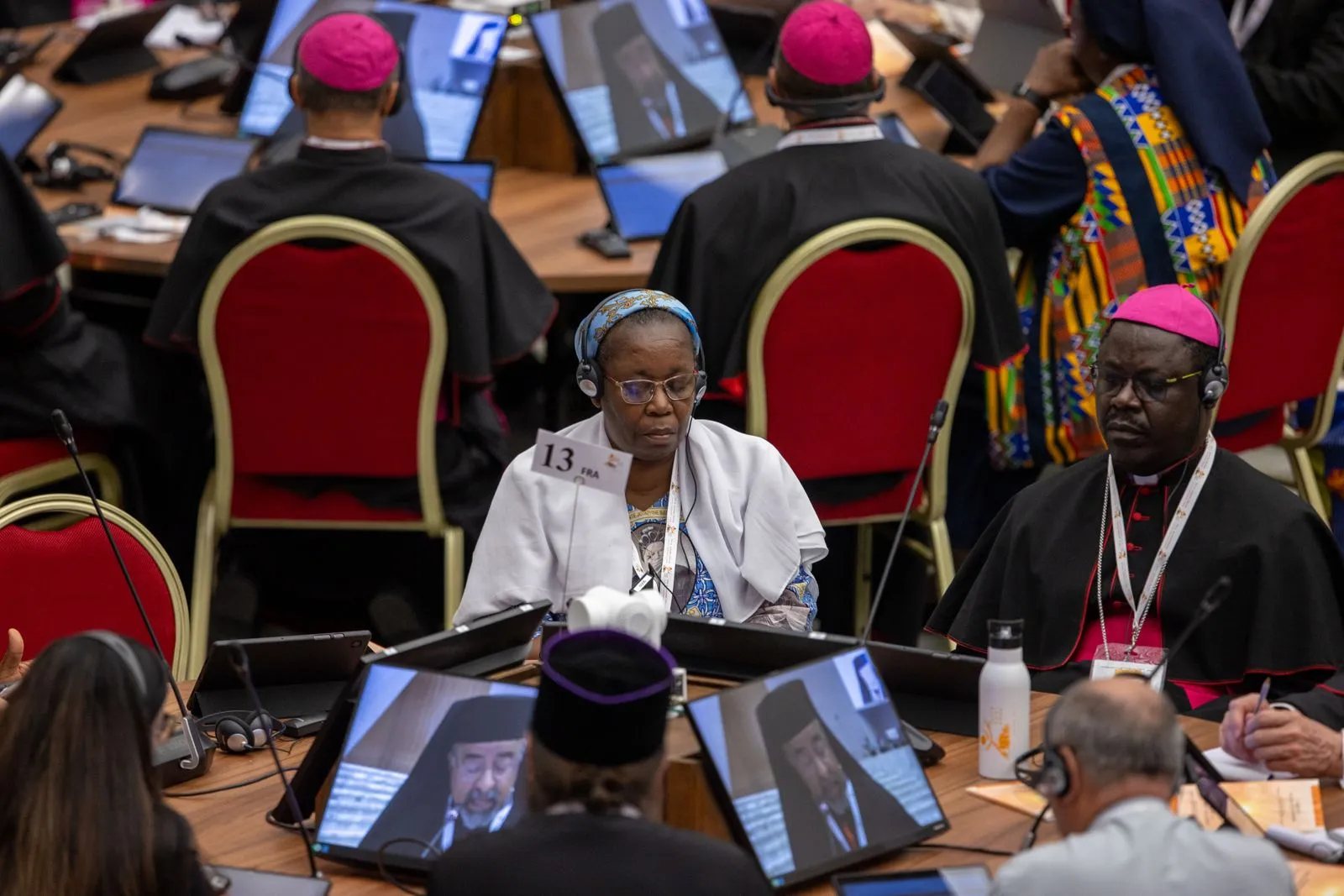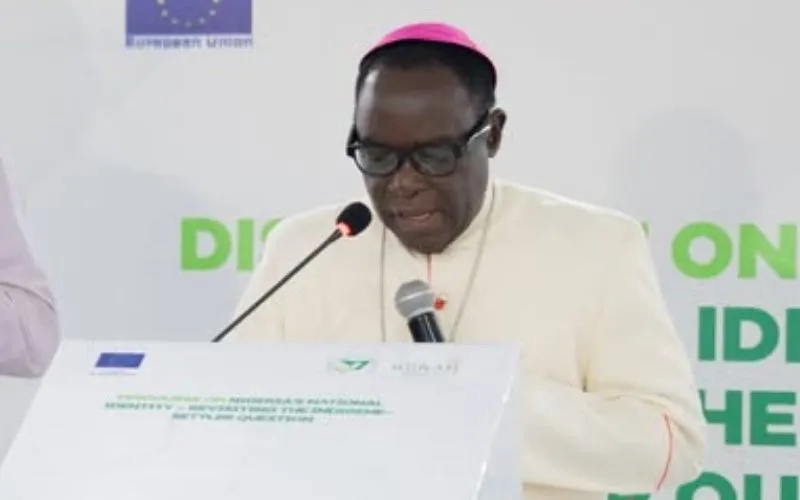Thus, a theological discernment on the issue of polygamy entails reflections on a practice that is grouped among sins that are gravely opposed to the Sacrament of Matrimony, alongside adultery and divorce.
A pastoral discernment: A call to conversion
The Synod delegates’ call on members of SECAM to discern the issue of polygamy from both theological and pastoral perspectives was made under the topic, “For a Church that listens and accompanies”. A pastoral discernment is likely to entail the listening to and accompaniment of persons in polygamous unions.
In an October 28 interview with the National Catholic Register (the Register), ACI Africa’s partner agency, Archbishop Andrew Fuanya Nkea of Bamenda Archdiocese in Cameroon acknowledged with appreciation the fact that during the October 4-29 sessions in Rome, the views of African delegates on the institution of marriage and the family were heeded.
The Cameroonian Catholic Archbishop, who is one of the 16 Prelates making up the Synod’s Ordinary Council that oversees the running of the process, said that African delegates were “very strong” about the fact that “in Africa, we understand marriage as a union between a man and a woman, and anything short of that is witchcraft.”
(Story continues below)
“This is something we said very strongly. We cannot be talking about sensitivities and orientations within the Church setting when this is what the Gospel says. This is what the teaching of the Church has said all along and this is what various cultures believe,” he said, underscoring African delegates’ stance on the teaching of the Church on the human person, and human sexuality during the Synod sessions.
Asked to weigh in on the Synod Relator General, Jean-Claude Cardinal Hollerich’s remarks about an openness for change in the Church at the Synod, Archbishop Nkea highlighted what is likely to entail the pastoral discernment on the issue of polygamy.
“We are open to many things. From Africa, we argued about polygamy not because we want polygamy legalized, but because we want accompaniment. Now, we in Africa are given the chance to set up theological commissions, to study polygamy and get pastoral directives that would adapt to that situation in Africa. This is a big opening,” he said during the October 28 interview in Rome.
The 58-year-old Archbishop who started his Episcopal Ministry in August 2013 as Coadjutor Bishop of Cameroon’s Mamfe Diocese explained in reference to “openness for change” in the Church’s teaching on controversial issues, including polygamy, “Although there are some accidentals that will definitely change, the essence will not change. To start a conversation with polygamists, we had to insert the word ‘conversion’ …. Conversion to the values of the Gospel.”
He further explained, “Whether we’re talking to 'LGBT' people or we’re talking to polygamists or we’re talking about ourselves, there must always be the call to conversion, conversion to the Gospel. What are the Gospel values? Entering into dialogue with all of these people is always in view of conversion. If we take that out, then we stop being evangelical; we are no longer backed by the Gospel.”
The call to conversion is a call to have persons in polygamous unions understand the value of fidelity in marriage, and that “by their own faithfulness they can be witnesses of God’s faithful love”, according to CCC 1648.
Meanwhile, the Synod delegates’ call on SECAM members to foster “the accompaniment of people in polygamous unions coming to faith” is likely to entail, among other fruits of the theological and pastoral discernment, conforming to the directives in CCC regarding Christians, who “cannot receive Eucharistic communion … cannot exercise certain ecclesial responsibilities” (CCC 1650).
If these Catholics “keep the faith and desire to bring up their children in a Christian manner, priests and the whole community must manifest an attentive solicitude, so that they do not consider themselves separated from the Church, in whose life they can and must participate as baptized persons,” according to CCC 1651.
Awaiting further theological and pastoral discernment on the issue of polygamy, Catholics who have contravened the Sacrament of Matrimony are “encouraged to listen to the Word of God, to attend the Sacrifice of the Mass, to persevere in prayer, to contribute to works of charity and to community efforts for justice, to bring up their children in the Christian faith, to cultivate the spirit and practice of penance and thus implore, day by day, God's grace” (CCC 1651).
Fr. Don Bosco Onyalla is ACI Africa’s founding Editor-in-Chief. He was formed in the Congregation of the Holy Ghost Fathers (Spiritans), and later incardinated in Rumbek Diocese, South Sudan. He has a PhD in Media Studies from Daystar University in Kenya, and a Master’s degree in Organizational Communication from Marist College, New York, USA.








